Have you ever experienced moments where you wished your memory was sharper or your concentration more focused? Or
Wondering are there any brain foods that can help improve your memory power?
In today’s fast-paced world, the demands on our cognitive abilities seem to increase by the day. Whether it is acing an exam, staying on top of deadlines at work, or simply remembering where you left your keys, having a strong memory and concentrating power is crucial for navigating life’s challenges with ease.
Fortunately, there is a simple yet powerful way to give your brain the boost it needs – nutrition. The foods we consume play a significant role in shaping our cognitive function, influencing everything from memory retention to mental clarity.
In this blog, we will explore the nutrient-packed brain foods that have been scientifically proven to enhance memory and concentration.
Table of Contents
15 Incredible Brain Boosting Foods
Let’s look at these delicious brain healthy foods that can fuel your mind and enhance cognitive function for a sharper, more focused you.
Oily Fish: The Power of Omega-3 Fatty Acids
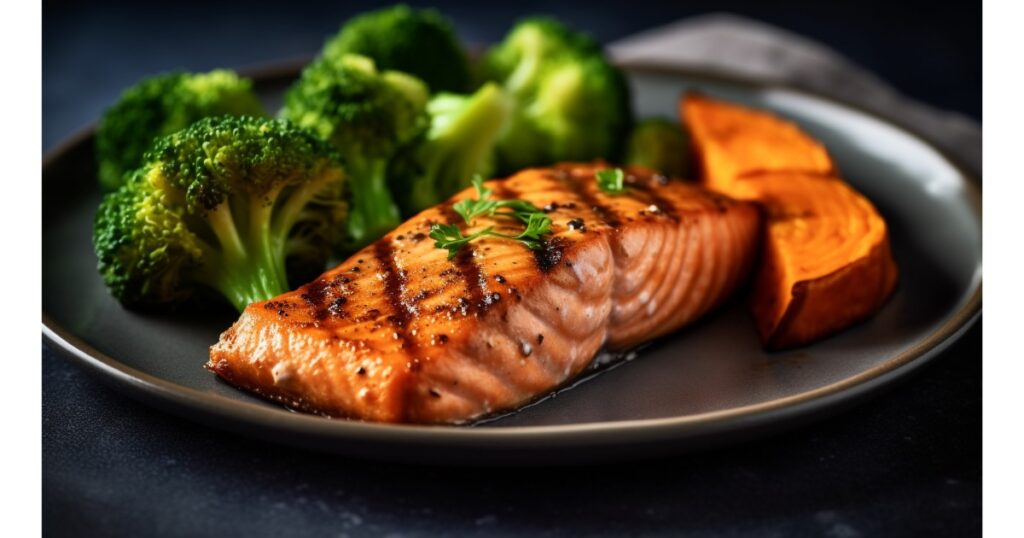
When it comes to brain health, oily fish takes the spotlight. Fish such as salmon, tuna, and sardines are excellent sources of omega-3 fatty acids, which are essential for brain function. Omega-3s play a crucial role in building brain and nerve cells, enhancing memory, and improving learning abilities. Regular consumption of these fatty acids has also been linked to a reduced risk of age-related mental decline and conditions like Alzheimer’s disease1.
Berries: The Antioxidant Powerhouses
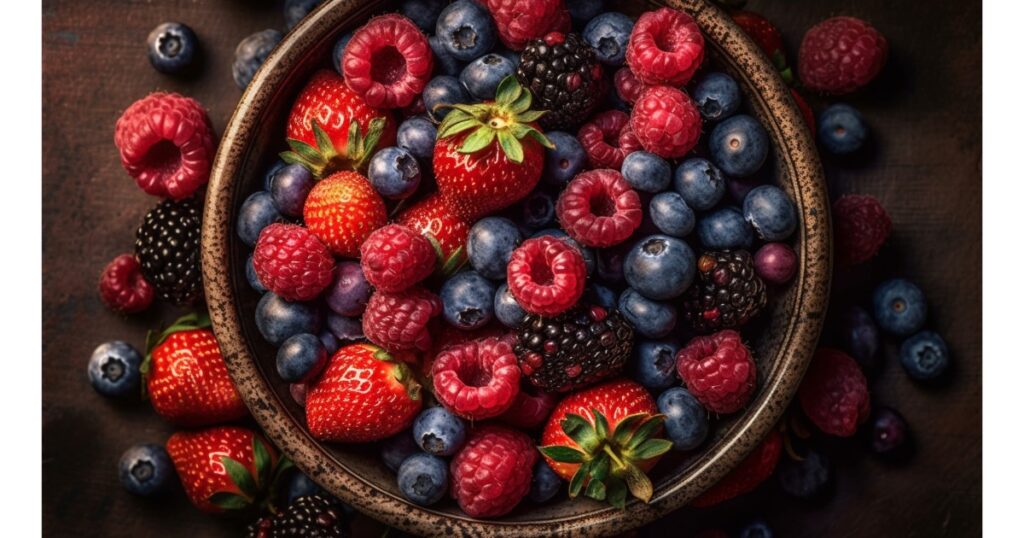
Berries, including strawberries, blueberries, and blackberries, are not only delicious but also packed with antioxidants. These antioxidants help reduce oxidative stress and protect the brain from damage caused by free radicals. Berries have been found to improve communication between brain cells, enhance learning and memory, and prevent cognitive decline associated with ageing.
Whole Grains: Fuel for the Brain
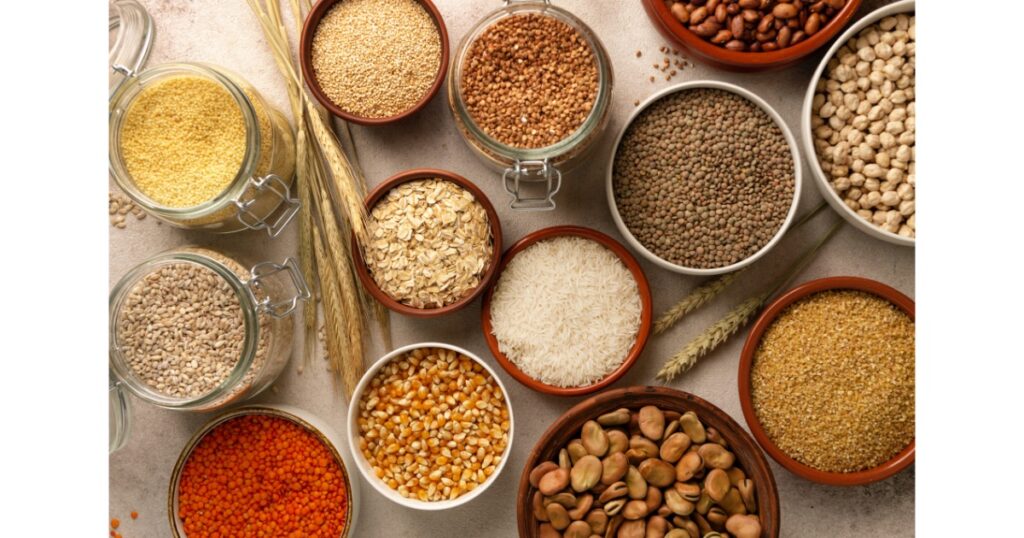
Whole grains, such as multigrain bread, whole wheat, quinoa, and oats, provide a steady release of glucose, the brain’s primary source of energy. Unlike refined carbohydrates, whole grains have a low glycemic index, which means they break down slowly and provide a sustained release of energy. This steady supply of glucose keeps the brain fueled and functioning optimally throughout the day making them one of the best brain foods.
Green Leafy Vegetables: A Nutrient Powerhouse
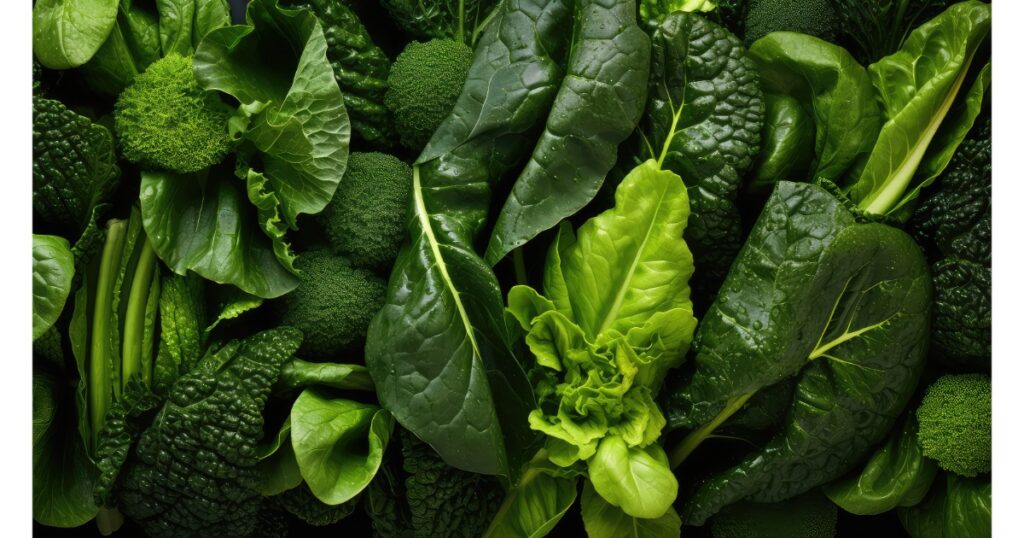
Leafy greens like kale, spinach, and broccoli are packed with essential nutrients, antioxidants, and vitamins that support brain health. These vegetables are rich in lutein and folate, which reduce inflammation in the brain and help slow down cognitive decline2. Incorporating these brain healthy foods into your diet can support better brain health and overall cognitive function.
Nuts and Seeds: Tiny Powerhouses of Nutrition
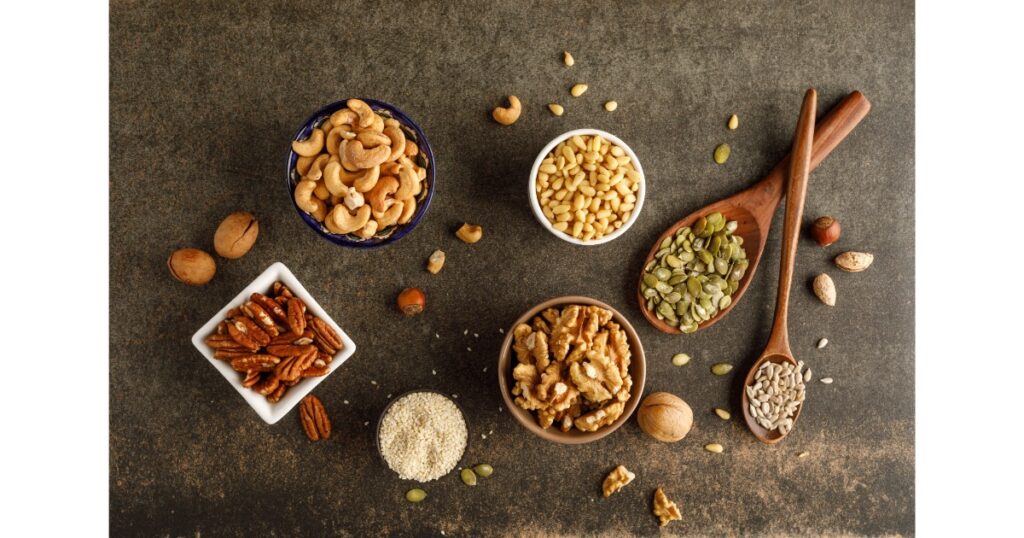
Nuts and seeds, including almonds, walnuts, chia seeds and flaxseeds, are excellent sources of healthy fats, omega-3 fatty acids, and antioxidants. These nutrients are crucial for brain health and have been associated with a reduced risk of age-related memory loss. Walnuts, in particular, stand out as the best brain food as they contain higher levels of antioxidants compared to other nuts and seeds.
Coffee: Enhancing Alertness and Focus

For many people, coffee is the go-to beverage to kickstart the day. The caffeine in coffee acts as a natural stimulant that enhances alertness, concentration, and overall brain function. Coffee is also rich in antioxidants, which can promote better brain health and protect against cognitive decline. However, it’s important to consume coffee in moderation and be mindful of its potential effects on sleep quality.
Oranges: A Vitamin C Boost for the Brain
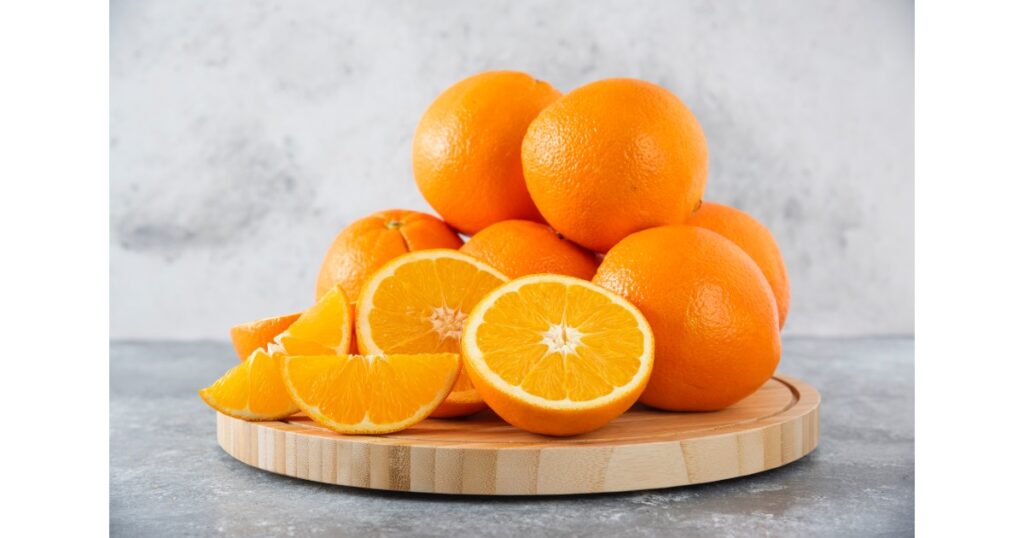
Oranges and other vitamin C-rich foods, such as guavas, kiwis, amla, limes, and bell peppers, play a vital role in maintaining optimal brain health. Vitamin C is a powerful antioxidant that protects brain cells from age-related damage. It also supports the production of neurotransmitters, which are essential for proper brain function.
Including these vitamin C-rich foods in your diet can help improve cognitive abilities and prevent mental disorders.
Avocados: The Healthy Fat Source
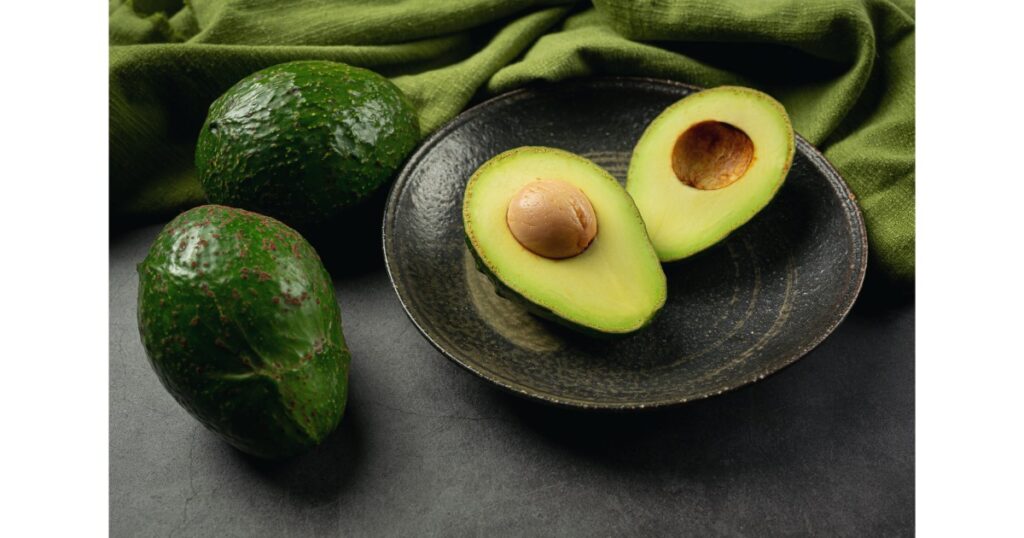
Avocados are not only delicious but also packed with healthy unsaturated fats that support brain health. These fats promote healthy blood flow, reduce blood pressure, and help prevent cognitive decline. Avocados also contain vitamins and minerals that nourish the brain and support overall cognitive function. Incorporating avocados into your diet can provide a wide range of brain-boosting benefits.
Eggs: The Nutrient Powerhouse

Eggs are often referred to as nature’s multivitamin, and for good reason. They are packed with essential nutrients like vitamin B6, B12, and folic acid, which play a crucial role in brain health. These nutrients protect the brain from shrinking and delay cognitive decline. Additionally, eggs are a rich source of choline, a nutrient known to improve brain function and memory.
Dark Chocolate: A Treat for the Brain
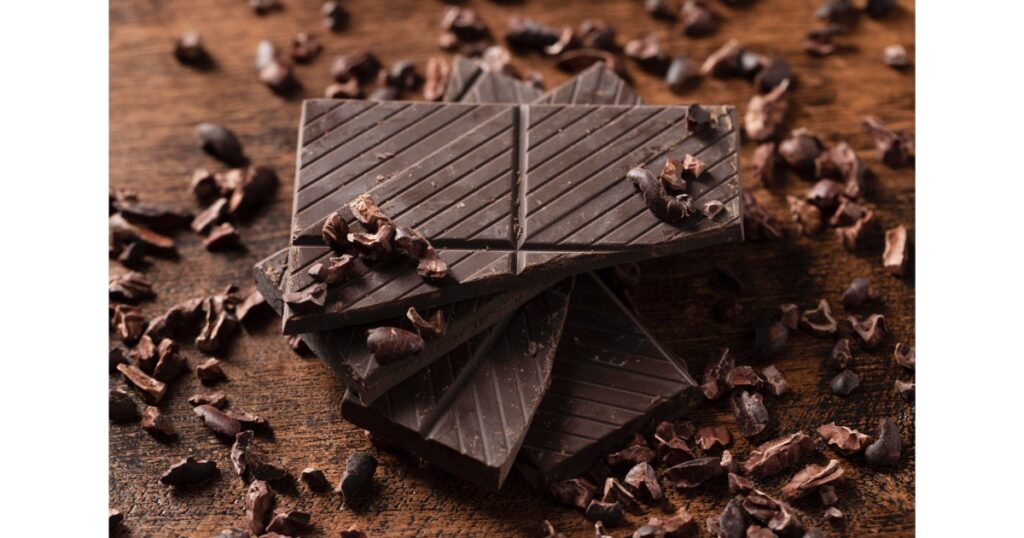
Good news for chocolate lovers! Dark chocolate, with a high cocoa content (more than 70%), is not only delicious but also contains powerful antioxidants and natural stimulants like caffeine. The flavonoids in dark chocolate have been shown to improve learning and memory, while its antioxidants help prevent cognitive decline. However, consume dark chocolate in moderation and choose varieties with minimal added sugars.
Matcha Green Tea: Sharpness with Every Sip
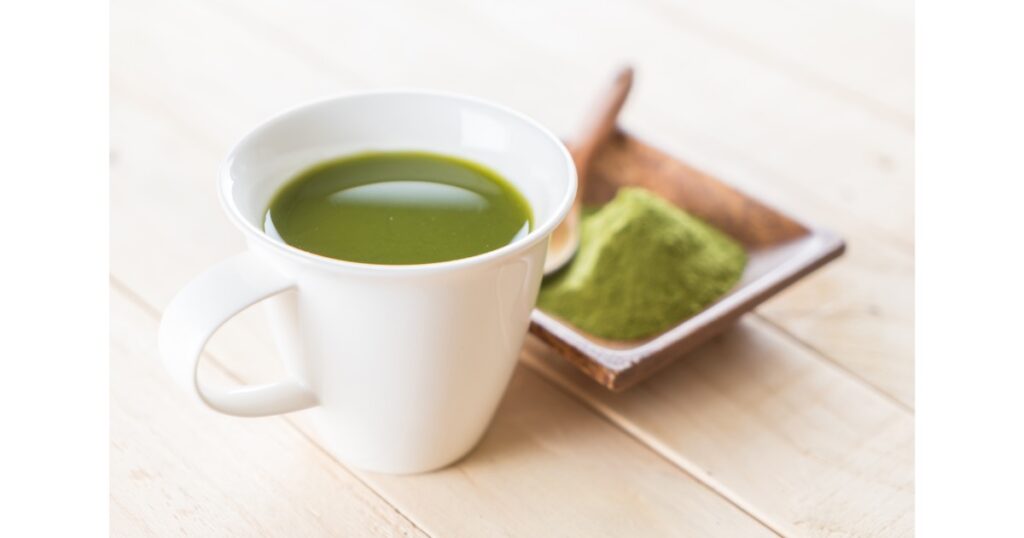
Matcha green tea isn’t just a soothing beverage; it’s a powerhouse for your brain health. Packed with antioxidants like catechins and polyphenols, green tea offers a potent defence against oxidative stress, which can damage brain cells and contribute to cognitive decline.
Moreover, green tea contains L-theanine, an amino acid known for its calming effects. This compound not only promotes relaxation but also boosts dopamine production, enhancing mood and focus. Regular consumption of green tea has been linked to improved memory, attention, and overall cognitive function3, making it a simple yet effective way to support your brain health. So, whether you are sipping it hot or enjoying it iced, each cup of green tea is a refreshing boost for your brain.
Broccoli: Fuelling Brain with Green Power
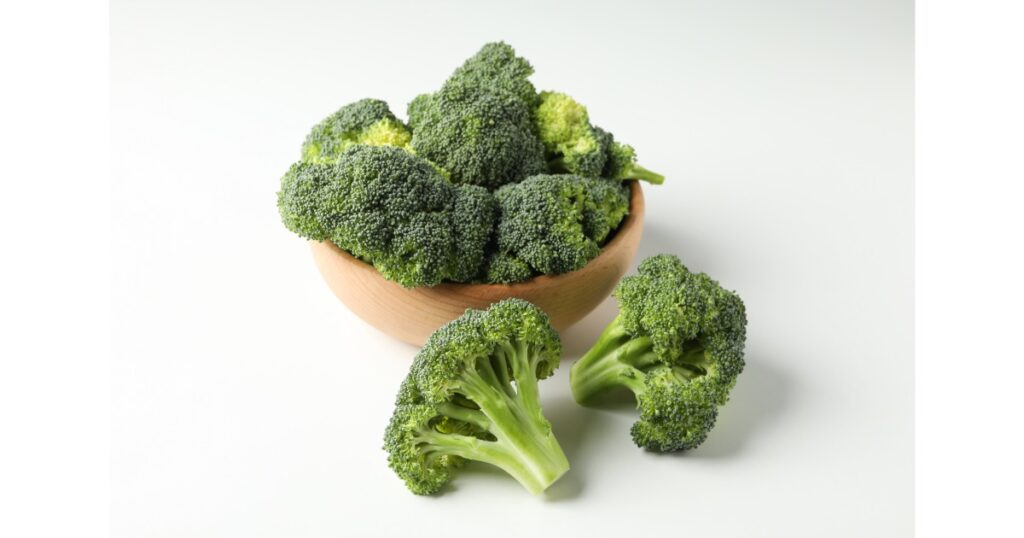
Broccoli holds remarkable benefits for your brain health. Packed with essential nutrients like vitamin K, which supports brain function and memory, and choline, known for aiding in learning and memory retention, this brain food is a smart choice for keeping your mind sharp. Additionally, its high levels of antioxidants, such as vitamin C and flavonoids, help combat oxidative stress and inflammation in the brain, reducing the risk of cognitive decline.
What’s more, broccoli is rich in fiber, promoting a healthy gut microbiome, which has been increasingly linked to brain health. Incorporating this vibrant green vegetable into your diet not only nourishes your body but also fuels your brain, ensuring you are ready to tackle mental challenges with clarity and focus.
Coconut: The Power of MCTs
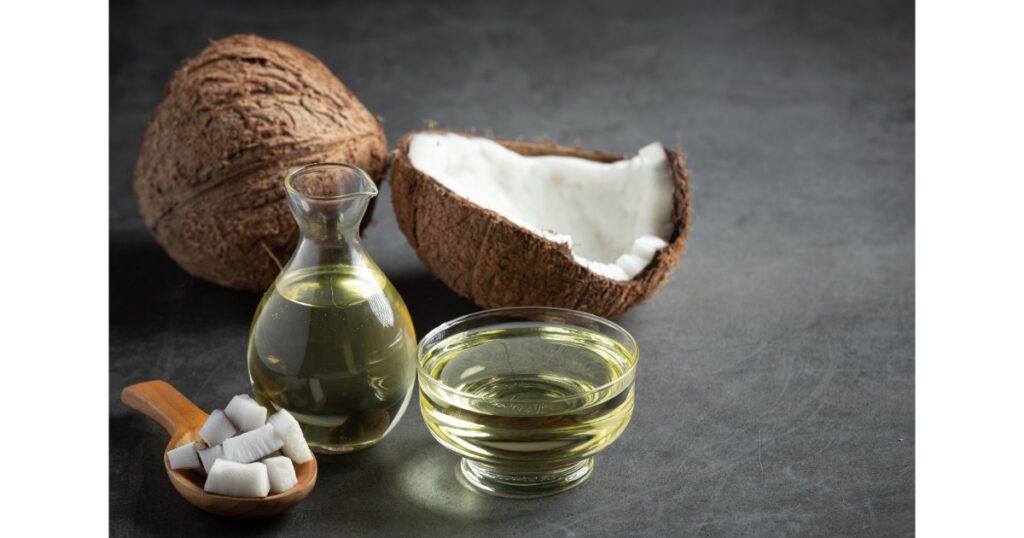
Coconuts offer a bounty of benefits for your brain, making them a delicious and versatile addition to your diet. Rich in medium-chain triglycerides (MCTs), coconut oil serves as a direct source of energy for the brain, providing a quick and efficient fuel source that can enhance cognitive function. These MCTs are easily metabolized by the liver, converting into ketones, which are readily utilized by the brain as an alternative energy source.
Moreover, coconut oil contains antioxidants that help protect brain cells from oxidative stress, potentially reducing the risk of neurodegenerative diseases like Alzheimer’s4. Beyond oil, coconut flesh is packed with vitamins and minerals, including manganese and copper, which play crucial roles in neurotransmitter synthesis and brain communication.
Turmeric: Golden Brilliance
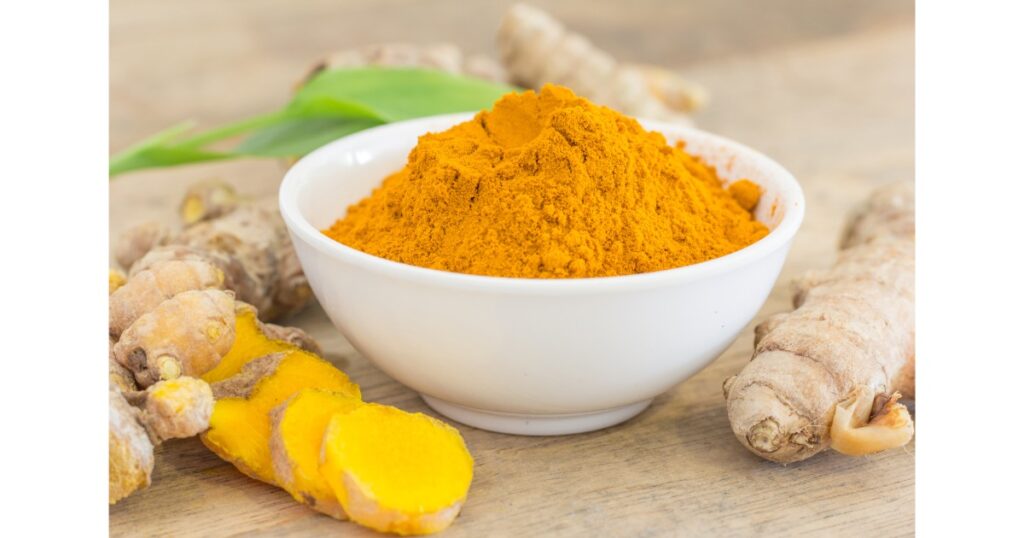
This natural brain enhancer is a potent brain booster with a rich history of use in traditional medicine. The active compound in turmeric, known as curcumin, boasts powerful anti-inflammatory and antioxidant properties that are beneficial for brain health. By reducing inflammation in the brain, curcumin may help protect against cognitive decline and age-related memory loss.
Curcumin has been shown to stimulate the production of brain-derived neurotrophic factor (BDNF), a protein that supports the growth and survival of neurons, thereby promoting overall brain function and enhancing learning and memory. Additionally, turmeric’s ability to increase blood flow to the brain can further optimize cognitive performance.
Extra-Virgin Olive Oil: Liquid Gold for Brain’s Health

Rich in monounsaturated fats and antioxidants, olive oil offers a multitude of benefits for cognitive well-being making it an ideal brain food. These healthy fats help support optimal brain function by promoting healthy blood flow and reducing inflammation, which is crucial for maintaining cognitive sharpness and preventing age-related cognitive decline.
Moreover, the antioxidants found in olive oil, such as oleocanthal and oleuropein, possess neuroprotective properties that can help safeguard brain cells from damage caused by oxidative stress. So, make olive oil a daily part of your culinary and enjoy the benefits it brings to your brain health and overall well-being.
Conclusion
Whether you are a student aiming for academic excellence, a professional striving for peak performance, or simply someone who wants to preserve their mental sharpness as they age, there is something here for everyone.
Incorporating brain healthy foods into your diet is a simple and effective way to support memory, concentration, and overall cognitive function. The brain foods mentioned in this article provide an array of essential nutrients, antioxidants, and healthy fats that nourish the brain and protect it from oxidative stress. By making these foods a regular part of your diet, you can fuel your brain for optimal performance and promote long-term brain health.
Remember, maintaining a healthy brain is not just about what you eat. It is also essential to get adequate sleep, stay hydrated, exercise regularly, manage stress, and engage in activities that stimulate the brain. By adopting a holistic approach to brain health, you can unlock your cognitive potential and lead a fulfilling life.
So, why wait? Start incorporating these brain-boosting foods into your diet today and give your brain the fuel it needs to thrive!
Say goodbye to brain fog and hello to enhanced memory, improved focus, and a sharper mind.
Frequently Asked Questions on Brain Foods
How to improve memory?
Here are a few tips:
1. Engage in learning new skills, or playing strategy games to challenge your brain and improve memory retention.
2. Exercise regularly.
3. Consume brain foods rich in omega-3 fats, antioxidants, vitamins C & E.
4. Get enough sleep.
5. Manage stress.
What are some foods that improve memory?
Fatty fish like salmon, anchovy, and sardine; pumpkin seeds, sunflower seeds, almonds, walnuts, spinach, beet greens, berries, and citrus fruits are a few best brain foods.
How to improve memory power?
Here are a few tips to boost memory and concentration:
1. Engage in learning new skills, or playing strategy games to challenge your brain and improve memory retention.
2. Exercise regularly.
3. Consume brain foods rich in omega-3 fats, antioxidants, vitamins C & E.
4. Get enough sleep.
5. Manage stress.
Do almonds improve memory?
Almonds can indeed contribute to improved memory and overall cognitive function. They are a rich source of nutrients that are beneficial for brain health, including vitamin E, which has antioxidant properties. Additionally, almonds contain healthy fats, such as monounsaturated and polyunsaturated fats, and magnesium which support optimal brain function and may enhance memory retention.
What is a good brain food?
Fatty fish like salmon, mackerel, and sardine; pumpkin seeds, chia seeds, Brazil nuts, almonds, walnuts, spinach, kale, turmeric, green tea, berries, and avocado are a few best brain healthy foods.
Which is the best brain development food?
Some of the top brain foods include fatty fish, eggs, dark green leafy vegetables, citrus fruits, beans, olives, nuts and seeds.
Which is the best baby brain development food during pregnancy?
Pregnant women should consider including foods rich in folic acid like dark green leafy vegetables, Brussels sprouts, legumes, beans, lentils, chickpeas, broccoli and citrus fruits to support the brain development of the growing foetus.
Which is the best food for brain?
Fatty fish like salmon, mackerel, and sardine; pumpkin seeds, chia seeds, Brazil nuts, almonds, walnuts, spinach, kale, turmeric, green tea, berries, and avocado are a few best brain healthy foods.
What are the 7 brain foods?
Some of the top brain boosting foods include fatty fish, whole grains, eggs, dark green leafy vegetables, citrus fruits, beans, olives, nuts and seeds.
Which fruit is best for brain?
Fruits like orange, amla, guava, kiwi, lemon, mosambi, strawberry, blueberry, cherry, blackberry, and raspberry are superb fruits for brain health.
Which is the best brain food for studying?
Fatty fish, dark chocolate, pumpkin seeds, chia seeds, Brazil nuts, almonds, walnuts, spinach, kale, turmeric, green tea, berries, and avocado are a few best brain healthy foods.
What are bad foods for brain?
Sugary foods and beverages, junk foods, highly processed foods, trans fats, alcohol and high-sodium foods are considered bad for brain health.
What should I drink for memory?
1. Water
2. Coconut water
3. Fresh beetroot and spinach juice
4. Herbal teas
5. Turmeric milk
6. Yogurt and berry smoothies
What are the 5 worst foods for memory?
1. Junk foods like pizza, burger, fries, etc.
2. Alcohol
3. Ready-to-eat foods
4. Sugary foods like cakes, pastries, cookies, sweets etc.
5. Sugary beverages like sodas, packed juices, squashes, etc.
What are some best foods for brain recovery?
Some of the top brain boosting foods include fatty fish, whole grains, eggs, dark green leafy vegetables, citrus fruits, beans, olives, nuts and seeds.
Sources
- Dighriri, I. M., Alsubaie, A. M., Hakami, F. M., Hamithi, D., Alshekh, M. M., Khobrani, F. A., Dalak, F. E., Hakami, A. A., Alsueaadi, E. H., Alsaawi, L. S., Alshammari, S. F., Alqahtani, A. S., Alawi, I. A., Aljuaid, A. A., & Tawhari, M. Q. (2022). Effects of omega-3 polyunsaturated fatty acids on brain functions: a systematic review. Cureus. https://doi.org/10.7759/cureus.30091 ↩︎
- Morris, M. C., Wang, Y., Barnes, L. L., Bennett, D. A., Dawson‐Hughes, B., & Booth, S. L. (2018). Nutrients and bioactives in green leafy vegetables and cognitive decline. Neurology, 90(3). https://doi.org/10.1212/wnl.0000000000004815 ↩︎
- Sakurai, K., Shen, C., Ezaki, Y., Inamura, N., Fukushima, Y., Masuoka, N., & Hisatsune, T. (2020). Effects of Matcha green tea powder on cognitive functions of Community-Dwelling elderly Individuals. Nutrients, 12(12), 3639. https://doi.org/10.3390/nu12123639 ↩︎
- La Rubia Ortí Je, D., Mp, G., Drehmer, E., D, S. C., M, J. R., Aguilar, M., & Hu, Y. (2018). Improvement of Main Cognitive Functions in Patients with Alzheimer’s Disease after Treatment with Coconut Oil Enriched Mediterranean Diet: A Pilot Study. Journal of Alzheimer’s Disease, 65(2), 577–587. https://doi.org/10.3233/jad-180184 ↩︎
